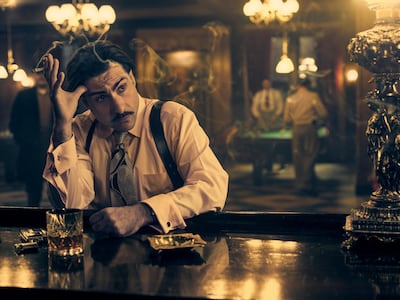The past three seasons of Fargo have, for the most part, stayed true to the American Midwestern noir of the Coen brothers' 1996 film. Though vaguely tied together by subtle hints, each season was a standalone, centred on a webbed crime story littered with ill-starred coincidences and good fortune.
As the seasons progressed, the stories, which exhibited avarice against the frigid backdrop of the Midwest, became incrementally more tangled. They were as riveting as they were unpredictable and had a dazzling cast list that included Martin Freeman, Billy Bob Thornton, Kirsten Dunst and Ewan McGregor. Fargo was a case study of how to make compelling TV from a great film.
Still, the show rarely wandered far from its safe space. It continued pitting good against evil. It was almost always clear which character represented whom. And in the end, good usually prevailed.
The show, as current director Noah Hawley put it, was a “tragedy with a happy ending”.
However, with the fourth season – which has its UAE premiere on Starzplay on Monday, September 28 – Hawley takes a stride out of this established format and confidently so. This season, set in Kansas City in the 1950s, may be the show’s gruffest to date. There are no clear good and bad guys. Rather, this is a story of immigrants living in the shadow of the American dream.
“If America is a nation of immigrants,” says 16-year-old Ethelrida Smutny (E’myri Lee Crutchfield) in the first episode, “then how does one become American?”
In the season premiere, we see Loy Cannon (Chris Rock) – a black migrant from the Jim Crow South – walking up a snow-caked street, hands in the pockets of his long blue overcoat, before he stops in front of a department store to face the Fadda family, the shiny-suited Italian syndicate of Kansas City.
By now, viewers have become familiar with the street outside the burgundy-bannered Joplin’s store. In the show’s first blistering 15 minutes, we are shown how Irish crime organisation the Milligan Concern met Jewish gang the Moskowitz Syndicate here before double-crossing them later in a gruelling ambush. We also see how the Irish met a similar fate after meeting the Italians on the same street.
Bloody and merciless precedents have been set here, underscored by patricide and betrayal. And so, as Cannon meets the Faddas, we can only expect the worst.
Even this early on in the show, it is evident that the newest instalment of the Fargo anthology is different. The season is a sweeping epic, confronting racism and prejudice, as well as tribalism. There are also considerably more characters this time around, each memorable and promising in their own way, from the hot-headed Josto Fadda (Jason Schwartzman) to the precociously wise Ethelrida and the unpredictably ruthless Oraetta Mayflower (Jessie Buckley).

Rock, who is usually thought of as a comedy actor, proves his dramatic aptitude with this role. There’s not much surprising depth in his performance, but he manages to deliver Cannon’s calculating – and at times, menacing – nature effectively.
Schwartzman pumps up the tension, as well as wringing out laughs. But perhaps the most memorable performance comes from Buckley, who takes on the role of the light-heartedly sinister Mayflower with grace. Another highlight is Salvatore Esposito, who plays the petrifying Gaetano Fadda.
The first three episodes plant promising seeds for the season. Between the customary show-of-peace child-swapping between the warring Kansas City gangs to Josto’s stone-hearted bid to be head of the Fadda family, there is plenty to look forward to.
Whether Hawley will manage to tie everything together in this ambitious instalment remains to be seen, but it’s clear that the director was experiencing cabin fever in the Minnesota of the Coen brothers and needed to take a leap.
And fans need fear not, the show is still filled with plenty of blood and snow.
Season four of Fargo starts on Starzplay on Monday, September 28



